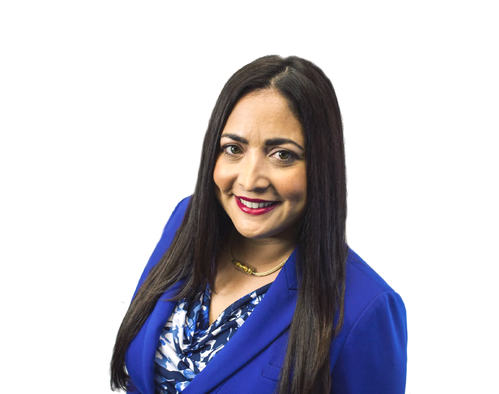
The medical device market is a US$495 billion market and is expected to grow to over $700 billion by 2029. While the market offers great opportunities for manufacturers, medical device imports and exports also present unique safety challenges for policymakers. Businesses considering importing or exporting medical devices should do thorough research ahead of time and consult with a trade attorney to ensure compliance with all applicable regulations.
Importing Medical Devices
Imports of medical devices are governed by the federal Food, Drug, and Cosmetic Act, which is administered by the Food and Drug Administration (FDA). All commercial imports of these items are subject to approval by the FDA, prior to being cleared by U.S. Customs and Border Protection (CBP).
Checklist to Import Medical Devices
At the time of importation, the FDA has the authority to examine your products. Importers should ensure their devices comply with all applicable requirements, including:
Premarket Notification 510(k): Some medical devices require premarket submissions to demonstrate that the devices are safe and effective.
Premarket Approval (PMA): The FDA’s process of regulatory and scientific review to evaluate the safety and effectiveness of certain devices.
Establishment Registration and Listing: Establishments that produce and distribute medical devices in the United States are required to register with the FDA. Most of these establishments are also required to list the device at that establishment.
Labelling Requirements: Devices are properly labelled in accordance with FDA regulations.
Medical Device Reporting: The importer has met the mandatory reporting requirements for medical devices.
US Designated Agent: Foreign manufacturers must designate a U.S. agent who will be responsible for assisting the FDA with communicating with the foreign establishment.
Quality Systems Regulation: The manufacturer must maintain a quality system that meets applicable FDA requirements.
If the FDA finds that a medical device does not meet these requirements, the products may be detained and ultimately refused entry into the United States.
FDA Enforcement Actions
The FDA engages in several import compliance and enforcement activities at the point of entry. There are several enforcement and compliance actions the FDA may take:
Examination and Sample Collection: The FDA may examine samples of products offered for entry into the US. If the FDA decides to examine your products, a Notice of FDA Action will be issued.
Detention and Hearing: If the product appears to be in violation, the product is subject to refusal, and a Notice of FDA Action will be issued. The notice will specify the nature of the violation and provide the importer an opportunity to present supporting evidence to overcome the violation, within a specified time period.
Import Alerts/Detention Without Physical Examination (DWPE): Import alerts inform FDA field staff that the agency has enough evidence or other information to allow for DWPE of products. Products are subject to DWPE based on past violations. These violations could be related to the product, manufacturer, shipper and/or other information indicating the product may be in violation of FDA laws.
Notice of Redelivery: If the FDA refuses the admission of a product or if a notice of sampling is not complied with, CBP will demand the redelivery of the product to CBP custody.
Notice of Refusal: Products can be refused entry into the US if they do not meet the FDA’s requirements. Importers have 90 days to export or destroy the products.
Notice of Penalty or Liquidated Damages: CBP may impose liquidated damages for failure to redeliver, export, or destroy merchandise in accordance with the agency’s requirements.
The standard for detention and refusal is low — detention is permissible without actual observation of a product or its labelling. Additionally, the ability to challenge the FDA is limited almost exclusively to legal, as opposed to factual, issues.
Exporting Medical Devices
Significant purchasing power lies outside the United States. Exporting medical devices enables manufacturers to broaden their scope and reach new markets. However, exporters need to be diligent in planning for compliance both in the United States and in foreign markets they are exporting to.
In the United States, the Department of Commerce and the State Department are the primary governing bodies for exports. For medical devices, foreign governments may ask for an Export Certification from the FDA.
Here are 11 steps to exporting:
Determine if your company is export ready – are you selling domestically? Do you have enough financial resources?
Create an export marketing plan and export budget – draft a sample export plan.
Research where international opportunities exist – research demand, tariffs, and pricing, and talk to other companies that have exported.
Protect your intellectual property – does your product need a patent in foreign markets?
Create an export compliance plan and manual – draft the plan and have an expert review.
Foreign country regulations and market adaptation – ensure you are ready to comply with labelling, packaging, and licensing requirements in foreign markets.
Determine the best methods of shipping and delivery – research a good logistics partner who can assist you.
Determine payment methods – cash-in-advance, letter of credit, open account, etc.
Get export financing, export credit insurance, and available government support – insurance protects exporters from non-payment by a foreign buyer
Continue to assess your exporting success – monitor market trends and changing regulations
Explore additional markets and repeat steps 4 to 10.
There are significant benefits to medical device manufacturers who can import and export their products. However, customs penalties can be severe and range from fines to criminal penalties in some cases. The best way to ensure compliance with all regulatory requirements is to take care in developing a comprehensive compliance plan and to have the plan reviewed by a trade attorney.

Jennifer Diaz, Esq., B.C.S, is a Chambers-ranked, board-certified international attorney, author, public speaker, and is considered a leading expert in International Trade Law by The Florida Bar. She is the founder of Diaz Trade Law, a customs and international trade law firm in South Florida. She will be discussing ‘Navigating FDA and US customs compliance issues when importing medical devices into the US’ on Thursday, June 22 at 2pm at FIME.
This article appears in Omnia Health magazine. Read the full issue online today
